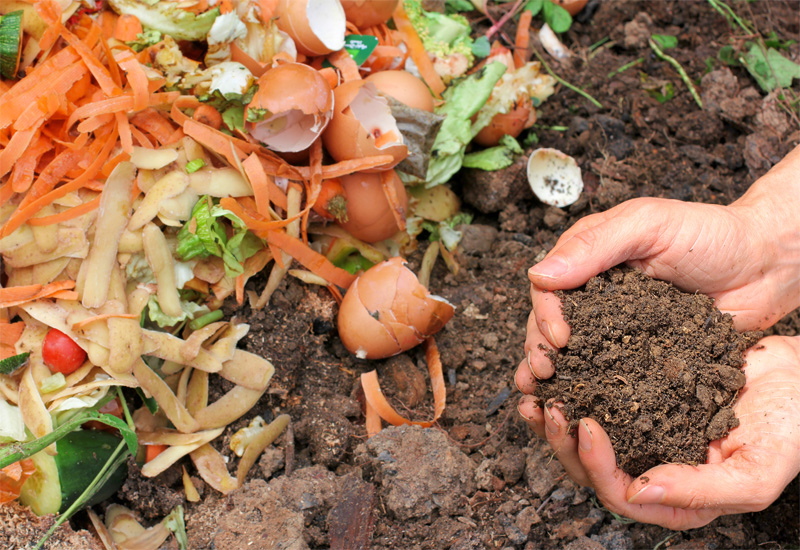INITIATIVES IN PLACE
Ramada Hotel & Suites Ajman GM Iftikhar Hamdani says handling food waste, such as discarded salads, is a tough job and challenging to dispose of correctly. He says: “Ramada Hotel & Suites Ajman was the first among hotels in the UAE to launch the Zero Landfill Project.
“All the hotel food waste, which averages 800-1000 kg a day, goes to the Zero Landfill’s room. Out of this, 60% is organic waste which directly goes to composter machine. The project recycles and reduces the hotel’s food waste, and the result of the composting process is used as food for our plants in the hotel’s 430m2 ‘Urban Farm’.”
Hamdani adds: “The Zero Landfill initiative is now in its second year and has achieved more than 90% waste diversion from the landfill.” Hamdani also reveals that the hotel has created a food control committee to monitor and work on reducing or disposing of excess food. He explains: “This committee conducted waste analysis and used this as a basis for further decision-making. Now, excess food is minimal.”

| Advertisement |
Al Maha Desert Resort & Spa executive chef and F&B manager David Miras says even simple measures taken can help with reducing the amount of food wasted and need not be a reactive measure. He explains: “Three years ago I changed the lunchtime offering from buffet to à la carte. This alone cut down on a lot of wastage as well as allowed us to provide much fresher options to our guests — so it was a win-win implementation.”
The Taste Initiative head chef Mark Taquet says his venue takes a holistic approach to reducing food waste, and attempts to reduce the amount of food sent to landfills in three stages.
He explains: “We attempt to minimise spoilage of food stocks. We order fresh produce supplies daily, based on a projected three-day shelf life of what is currently in our refrigerators. Then we use the ‘first in, first out’ principle of utilising stocks.
Additionally, we have consciously designed our menu to use as many common ingredients as possible. If a certain stock does not get used through one dish, it has many other opportunities to be utilised. Lastly, if we notice a glut of one type of produce that is expected to go off, whenever possible we make a soup or juice to use them up.”
The second stage is to deal with uneaten prepared food. Taquet says: “One of our biggest pet peeves in Dubai is massive portion sizes that end up going to waste. Over time, we have monitored our customers’ feedback and their leftovers to adjust our portion sizes.”
The final stage, according to Taquet, is landfill diversion. “There are some types of food waste that we end up with no matter what. We turn our carrot and turnip trimmings to crisps for garnish by boiling, straining, food processing and then dehydrating them. We use our onion, garlic and pepper ends and peels to make delicious veggie stock. For conferences and events, we package leftovers and ask organisers to share them with their employees or do so among our own employees.”
However, regardless of its approach, food waste is still inevitable. So, Taquet says, the venue uses an industrial dewatering machine which shreds and shrinks the volume of waste by roughly 80%.
Pantry Café vice-chairperson Yana Kalwani says the venue’s food waste goes into a pulveriser which means more waste goes into the same size container. “The converter is one of the ‘green technologies’ available today for waste treatment as it sharply reduces the demand on landfills,” she adds.
Taquet is all praise for local establishments working to combat waste. He cites: “There are several models that have been piloted in the hospitality industry in the UAE. Two notable examples are Al Qasr’s use of multiple Bokashi bins (fermentation) used in conjunction with its landscaping team, and Ramada Ajman’s composting machine and supporting its Urban Farm.”
Article continues on next page ...









 Search our database of more than 2,700 industry companies
Search our database of more than 2,700 industry companies









